
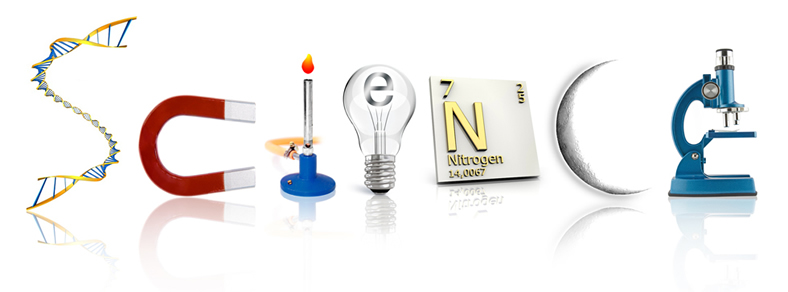
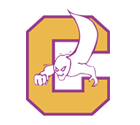
 |
 |
 |
Department The teachers within our department can be contacted by phoning the school at (519)-452-2620 or via email.
|
Descartes, the French philosopher, mathematician, and writer stated, "I think; therefore I am. Science embodies that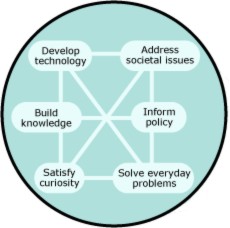 sentiment. Science is a way of thinking; an approach to understanding the world we live in and ourselves. The process of science allows one to test that understanding, makes sense of our observations and realize our place in the cosmos. This investigative approach and desire to understand what, how and why are entrenched within all of us. From the moment we are born until our state of maximum entropy, we willingly reach beyond our current capacity to test, learn and grow. Furthermore, the skills developed through this journey are transferable to all aspects of our daily lives. Since science relies heavily upon observation, analysis and higher-order critical thinking, it teaches us how to master these skills and maximize our learning potential to to properly explore ourselves, our surroundings to learn and adapt. Thus, understanding of our would be incomplete without some formal level of science study/investigation. sentiment. Science is a way of thinking; an approach to understanding the world we live in and ourselves. The process of science allows one to test that understanding, makes sense of our observations and realize our place in the cosmos. This investigative approach and desire to understand what, how and why are entrenched within all of us. From the moment we are born until our state of maximum entropy, we willingly reach beyond our current capacity to test, learn and grow. Furthermore, the skills developed through this journey are transferable to all aspects of our daily lives. Since science relies heavily upon observation, analysis and higher-order critical thinking, it teaches us how to master these skills and maximize our learning potential to to properly explore ourselves, our surroundings to learn and adapt. Thus, understanding of our would be incomplete without some formal level of science study/investigation. |
Extra Help Science courses are quite rigorous requiring a balance amongst understanding, application and problem-solving. This may require extra help from time to time to aid with clarification, to support growth and to ensure proper pacing of progress. The teachers within the department are more than willing to spend time outside of class to accommodate the needs of our students. However, many of our teachers are involved in other aspects of the school resulting in different times of availability. Also, meetings and other activities spring up from time-to-time so it is best that students speak with their teacher ahead of time to ensure that they will be available when needed. It is best to seek help from the actual teacher for the class rather than any teacher to ensure continuity and it helps that teacher understand individual student needs. Typically, extra help from each teacher is offered according to the following chart:
|
Overall Department Program Goals The Central Science department has adopted an investigative approach to learning science which not
|
 |
The Central Science department has adopted an investigative approach to learning science which not 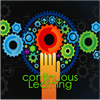 only equips students with a solid conceptual foundation, but also, encourages the advancement of individualized scientific skills. In essence, we seek to aid students in becoming scientists. This is reflected in each of our courses and throughout the entire Science program. This ensures that when students leave Central, they are extremely adept at critical thinking, making connections and analysis which not only fosters success at the post-secondary Science level, but ensures our students are Scientifically literate in all future ventures. only equips students with a solid conceptual foundation, but also, encourages the advancement of individualized scientific skills. In essence, we seek to aid students in becoming scientists. This is reflected in each of our courses and throughout the entire Science program. This ensures that when students leave Central, they are extremely adept at critical thinking, making connections and analysis which not only fosters success at the post-secondary Science level, but ensures our students are Scientifically literate in all future ventures. |
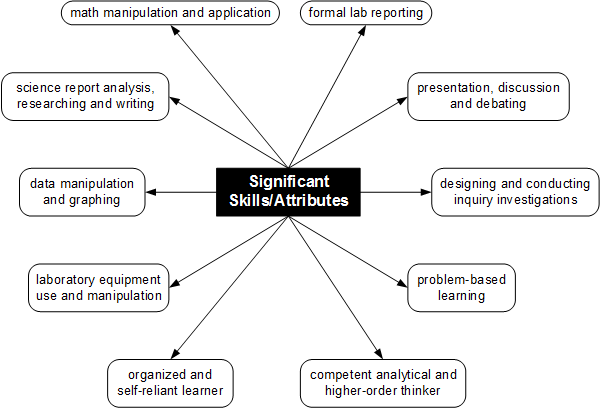 |
| We recognize that these lofty goals take time and cannot be realized without persistence and positive coaching. As such, we don't really envision our courses as separate subjects; rather, they create a larger, integral package that develops the learner on multiple levels over time. They work in conjunction to create a complete learner ready to tackle any challenge presented after leaving our school. Each course plays a critical part in this development. The development of the science learner focuses on key aspects involved in that development over times from grade 8 to grade 12. This focus does not address content, but rather the skills and major learning strategies utilized to help foster successful science students. |
 |
 |
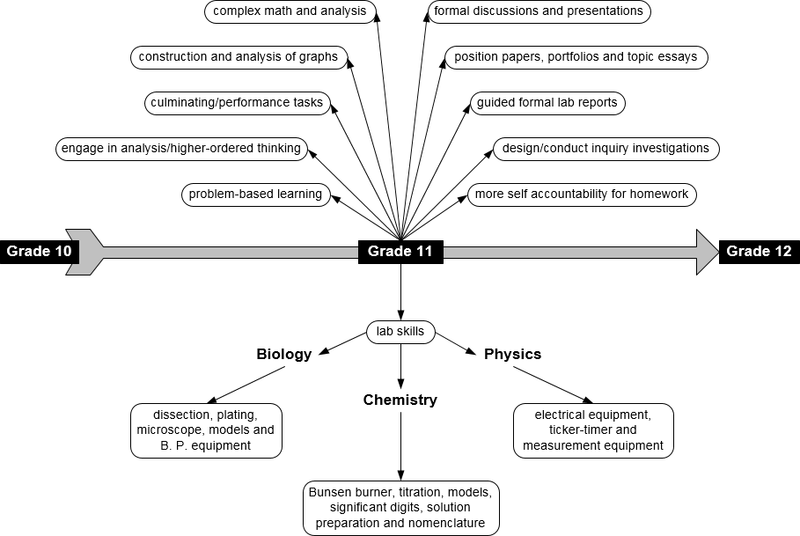 |
 |
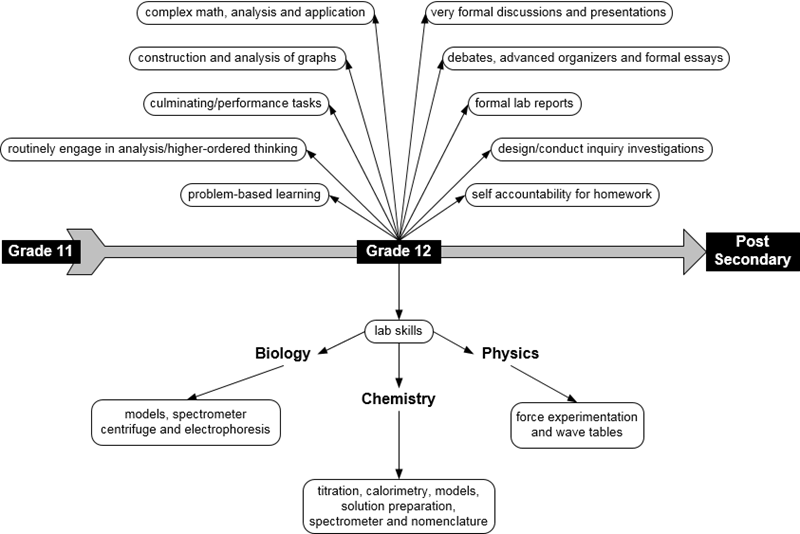 |
Enrichment The Science department works to offer a variety of unique enrichment opportunities to foster student interest and achievement in specific areas and in specific manners. Some of these opportunities also provide an alternate path for any gifted, bright and talented students and motivated students. |
||||||||||||||
| Courses | ||||||||||||||
The grade 10 Enriched Academic Science course enables students to enhance their understanding of concepts in 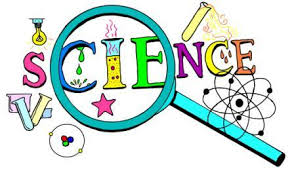 biology, chemistry, earth and space science, and physics, and of the interrelationships between science, technology, society, and the environment. Students are also given opportunities to further develop their scientific investigation skills. Students will plan and conduct investigations and develop their understanding of scientific theories related to ecology and the maintenance of ecosystems; chemical reactions, with a particular focus on acid–base reactions; forces that affect climate and climate change; and the interaction of light and matter. The focus will be on problem-based and inquiry-based learning. Students will be asked to study real-world issues in-depth using inductive and deductive thinking to pose scientific questions and develop inferences from their personalized observations/research. biology, chemistry, earth and space science, and physics, and of the interrelationships between science, technology, society, and the environment. Students are also given opportunities to further develop their scientific investigation skills. Students will plan and conduct investigations and develop their understanding of scientific theories related to ecology and the maintenance of ecosystems; chemical reactions, with a particular focus on acid–base reactions; forces that affect climate and climate change; and the interaction of light and matter. The focus will be on problem-based and inquiry-based learning. Students will be asked to study real-world issues in-depth using inductive and deductive thinking to pose scientific questions and develop inferences from their personalized observations/research. |
||||||||||||||
| Co-curricular and Extracurricular | ||||||||||||||
The Science department offers a variety of enriching activities outside class time to encourage and interest budding scientists. These activities are run by a member in the department volunteering their time and expertise to create additional learning environments tied directly to course material or just for general interest. Since these are volunteer activities, they don't always run year after year, but we try to run as many as possible. Typical activities include: |
||||||||||||||
|